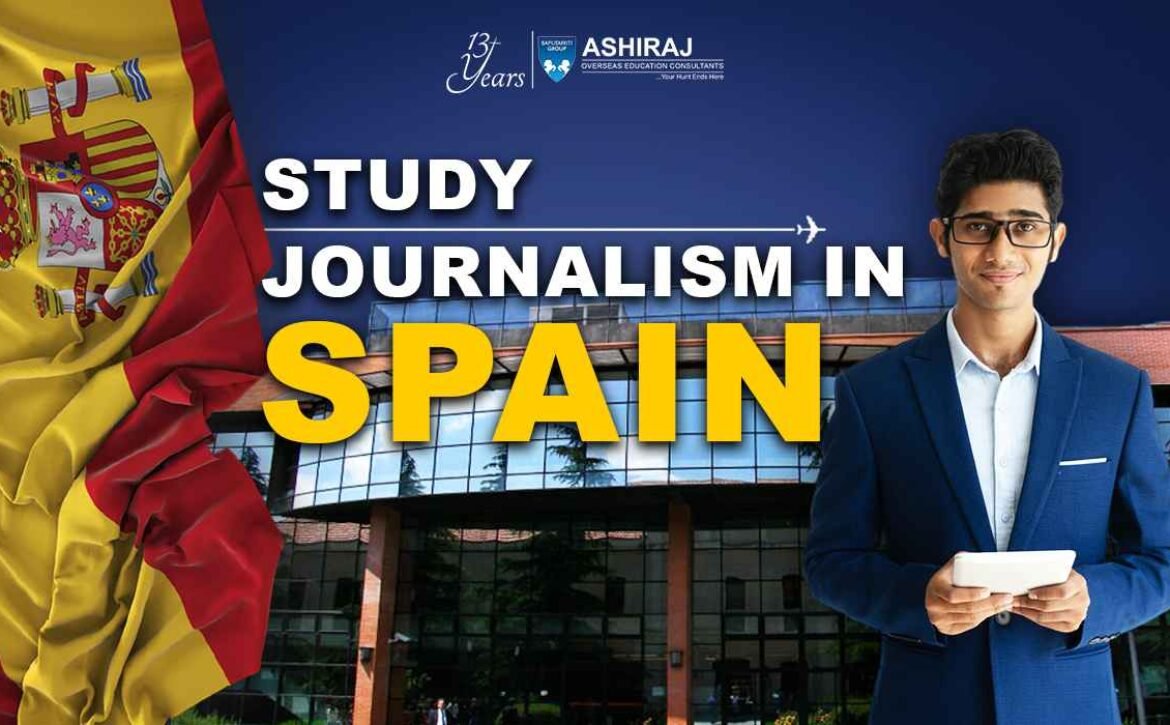
Journalism in Spain
Journalism in Spain has a rich and dynamic history deeply intertwined with the country’s socio-political landscape. From the early days of print media to the digital age, Spanish journalism has evolved significantly, reflecting the nation’s cultural diversity and democratic progress. Spain boasts a vibrant media landscape with a multitude of newspapers, television channels, radio stations, and online platforms catering to a diverse audience.
Journalism in Spain has witnessed transformative phases, marked by periods of censorship, political upheaval, and journalistic activism. Despite facing challenges like media consolidation and financial constraints, Spanish journalists continue to uphold the values of press freedom and investigative reporting. The profession remains crucial in shaping public discourse, holding power to account, and fostering transparency in a rapidly changing society. In the contemporary era, Spanish journalism confronts new challenges posed by the digital revolution, including misinformation, ethical dilemmas, and the need to adapt to evolving audience preferences.
Why to Study Journalism in Spain?
- Rich Cultural Context: Spain offers a vibrant cultural backdrop for journalism students, providing firsthand exposure to diverse perspectives, traditions, and societal issues.
- Historical Significance: With a storied past in journalism, studying in Spain allows students to delve into the country’s rich journalistic heritage, learning from both historical triumphs and challenges.
- Language Advantage: Immersion in the Spanish language provides students with a valuable asset in the global media landscape, opening doors to Spanish-speaking markets worldwide.
- Global Perspective: Spain’s strategic location as a gateway between Europe, Africa, and the Americas offers students a unique vantage point to explore international journalism and cross-cultural communication.
- Academic Excellence: Renowned universities and journalism schools across Spain offer high-quality education with innovative programs, experienced faculty, and state-of-the-art facilities.
- Professional Opportunities: Spain’s dynamic media industry provides abundant internship and job prospects for aspiring journalists, offering hands-on experience and networking opportunities.
- Innovation Hub: Spain is at the forefront of digital media innovation, making it an ideal environment for students to explore emerging trends, technologies, and multimedia storytelling techniques.
Studying journalism in Spain provides a holistic educational experience steeped in history, culture, and innovation, shaping the next generation of global journalists equipped to navigate the complexities of the modern media landscape.
Top Universities to Study Journalism in Spain
University | QS World University Ranking 2023 | Type of University | Average Annual Fees | Programs Offered |
University of Navarra | 101-150 | Private | €9,000 – €13,000 | Bachelor’s in Journalism, Master’s in Journalism |
Pompeu Fabra University | 151-200 | Public | €1,500 – €3,000 | Bachelor’s in Communication, Master’s in Journalism |
Autonomous University of Barcelona | 201-250 | Public | €1,000 – €2,000 | Bachelor’s in Journalism, Master’s in Journalism |
Complutense University of Madrid | 251-300 | Public | €1,000 – €2,000 | Bachelor’s in Journalism, Master’s in Journalism |
University of Barcelona | 301-350 | Public | €2,000 – €3,000 | Bachelor’s in Communication, Master’s in Journalism |
Studying journalism in Spain offers students a plethora of options from top-ranked universities. The University of Navarra, renowned for its rigorous journalism programs, stands out for its comprehensive curriculum and esteemed faculty. Pompeu Fabra University, located in Barcelona, provides a public education option with a focus on communication and journalism. The Autonomous University of Barcelona and Complutense University of Madrid also offer excellent programs, blending theoretical knowledge with practical experience. Meanwhile, the University of Barcelona rounds out the list with its strong emphasis on communication studies and journalism training. With affordable tuition fees and diverse program offerings, these universities provide aspiring journalists with the necessary skills and knowledge to thrive in the dynamic field of journalism in Spain.
Course Curriculum for Journalism in Spain
- Foundational Courses: Journalism programs in Spain typically start with foundational courses covering media history, ethics, and communication theory, providing students with a solid understanding of the field’s principles.
- Multimedia Skills: Emphasis is placed on developing versatile multimedia skills, including writing for print and digital platforms, photography, video production, and audio storytelling, reflecting the evolving nature of journalism in Spain.
- Specialized Reporting: Students delve into specialized reporting areas such as investigative journalism, political reporting, cultural journalism, and data journalism, equipping them with the expertise to cover diverse topics comprehensively.
- Cross-cultural Communication: Given Spain’s multicultural society, coursework often includes modules on cross-cultural communication, enabling students to navigate and report on diverse communities with sensitivity and understanding.
- Internships and Practical Experience: Many programs incorporate internships and practical projects with media organizations, allowing students to gain real-world experience and build professional networks within the vibrant journalism industry in Spain.
- Ethical and Legal Considerations: Courses on media law, ethics, and professional standards are integral to the curriculum, ensuring students adhere to ethical principles and legal frameworks while practicing journalism in Spain.
- Digital Innovation: With the rise of digital media, journalism programs in Spain integrate courses on digital innovation, social media management, and audience engagement strategies, preparing students for the digital era of journalism.
The course curriculum of journalism in Spain is designed to equip students with the necessary skills, knowledge, and ethical considerations to excel in the dynamic and diverse field of journalism in Spain, ensuring they are well-prepared to navigate the challenges and opportunities inherent in the profession.
Eligibility Criteria & Admission Requirements for MS in Journalism in Spain
- Language Proficiency: Applicants must demonstrate proficiency in either English or Spanish through standardized tests such as IELTS or TOEFL. A minimum score of 6.5 in IELTS or 90 in TOEFL is typically required.
- Academic Qualifications: Candidates are expected to hold a bachelor’s degree or its equivalent from a recognized institution. Transcripts and academic certificates showcasing a strong academic background are essential.
- Standardized Tests: Depending on the university’s requirements, applicants may need to submit scores from standardized tests such as GRE or GMAT. A competitive score in these tests demonstrates academic aptitude and readiness for graduate-level studies.
- Passport & Student Visa: International applicants must possess a valid passport and obtain a student visa to study in Spain. Proper documentation demonstrating financial capability and a letter of acceptance from the university are usually required for the visa application process.
- Work Experience: While not always mandatory, relevant work experience in journalism or related fields can strengthen an applicant’s profile. Internships, freelance work, or employment in media organizations showcase practical skills and industry knowledge.
Test | Minimum Score |
IELTS | 6.5 |
TOEFL | 90 |
GRE | 300 |
GMAT | 550 |
Meeting these eligibility criteria ensures that aspiring journalists are well-prepared to pursue their studies in Spain, immersing themselves in the vibrant world of Journalism in Spain.
Documents Required for Studying Journalism in Spain
- Passport: A valid passport is essential for international students seeking admission to journalism programs in Spain. It serves as proof of identity and nationality.
- Letter of Recommendation (LOR): Two or more letters of recommendation from academic or professional references are typically required. These letters provide insights into the applicant’s character, skills, and suitability for the program.
- Statement of Purpose (SOP): An SOP outlines the applicant’s academic background, career goals, and reasons for choosing the specific journalism program in Spain. It helps admissions committees assess the candidate’s motivation and fit for the program.
- Curriculum Vitae (CV): A comprehensive CV highlights the applicant’s academic achievements, work experience, internships, extracurricular activities, and relevant skills. It provides a snapshot of the candidate’s qualifications and accomplishments.
- Official Transcripts and Educational Certificates: Official transcripts and educational certificates from high school and any previous academic institutions are required to verify the applicant’s academic qualifications and eligibility for admission.
- Work Experience Certificate: If applicable, a work experience certificate documenting any relevant professional experience in journalism or related fields is required. It demonstrates the applicant’s practical skills and industry knowledge.
- Proof of Financial Resources: Applicants must provide evidence of sufficient financial resources to cover tuition fees, living expenses, and other costs associated with studying and living in Spain. This may include bank statements, scholarship awards, or sponsorship letters.
Ensuring the timely submission of these documents is crucial for a smooth application process and admission to journalism programs in Spain, facilitating the pursuit of academic and professional goals in the vibrant field of Journalism in Spain.
Admission Process for Journalism in Spain
- Research Programs: Explore journalism programs offered by universities in Spain, considering factors such as curriculum, faculty expertise, and campus facilities. Identify programs that align with your academic and career goals.
- Check Eligibility: Review the admission requirements for each program, including academic qualifications, language proficiency tests (such as IELTS or TOEFL), and standardized test scores (GRE or GMAT).
- Gather Documents: Collect required documents, including academic transcripts, letters of recommendation (LOR), statement of purpose (SOP), curriculum vitae (CV), passport, educational certificates, work experience certificates, and proof of financial resources.
- Prepare Application Materials: Tailor your SOP and CV to highlight relevant experiences and achievements in journalism or related fields. Request LORs from academic or professional referees well in advance.
- Submit Application: Complete the online application form for your chosen journalism program(s) and upload all required documents. Pay the application fee, if applicable, and ensure that all materials are submitted before the deadline.
- Attend Interviews (if required): Some programs may require interviews as part of the admission process. Prepare for interviews by researching the program and articulating your interest and qualifications in journalism in Spain.
- Wait for Decision: After submitting your application, wait for the university to review your materials and make an admission decision. Monitor your email regularly for updates on your application status.
- Accept Offer and Complete Formalities: If offered admission, accept the offer and complete any additional formalities, such as paying tuition fees, obtaining a student visa, and arranging accommodation. Prepare for your exciting journey into the world of Journalism in Spain.
“Education is the most powerful weapon which you can use to change the world.”
Nelson Mandela
Cost of Journalism Course in Spain
- Tuition Fees: The cost of tuition for journalism programs in Spain varies depending on the university, program duration, and level of study. On average, tuition fees for undergraduate programs range from €1,000 to €3,000 per year for EU students and €4,000 to €12,000 per year for international students. For graduate programs, fees typically range from €2,000 to €6,000 per year for EU students and €5,000 to €15,000 per year for international students.
- Living Expenses: Living expenses in Spain, including accommodation, food, transportation, and miscellaneous costs, vary depending on the city and lifestyle. On average, students should budget between €800 to €1,200 per month to cover living expenses.
- Additional Costs: Additional costs may include books and study materials, health insurance, visa application fees, travel expenses, and extracurricular activities.
- Scholarships and Financial Aid: Some universities in Spain offer scholarships, grants, and financial aid packages to help offset the cost of studying journalism. International students may also be eligible for scholarships from government organizations, private foundations, and international agencies.
- Part-Time Work Opportunities: Students in Spain are permitted to work part-time while studying, which can help supplement their income and offset living expenses.
Considering these factors can help prospective students budget and plan for the cost of studying journalism in Spain, ensuring a smooth and financially manageable experience in the vibrant world of Journalism in Spain.
Scholarships for Journalism Courses in Spain
Scholarship Name | Amount (€) | Application Deadline |
Fulbright Scholarship | 10,000 – 20,000 | Varies (typically December – February) |
Erasmus Mundus Joint Master’s Degree Scholarship | Full tuition + stipend | Varies (typically January – March) |
Spanish Government Scholarships | Varies | Varies (typically March – May) |
Santander Scholarships | 3,000 – 10,000 | Varies (typically April – June) |
University-specific Scholarships | Varies | Varies (typically May – July) |
Securing scholarships can significantly alleviate the financial burden of studying journalism in Spain. The Fulbright Scholarship offers funding for both undergraduate and graduate students, with application deadlines typically falling between December and February. The Erasmus Mundus Joint Master’s Degree Scholarship covers full tuition and provides a stipend for living expenses, with deadlines usually between January and March. Additionally, the Spanish Government and Santander Scholarships offer financial assistance to international students pursuing journalism degrees, with application deadlines ranging from March to June. Many universities also offer their own scholarships, with deadlines varying between May and July. Prospective students should research and apply for scholarships well in advance to maximize their opportunities for funding in the dynamic realm of Journalism in Spain.
Career Opportunities After Journalism in Spain
Job Profile | Average Salary (€) |
Journalist | 20,000 – 35,000 |
News Reporter | 18,000 – 30,000 |
Editor | 25,000 – 40,000 |
Digital Content Creator | 22,000 – 37,000 |
Broadcast Journalist | 20,000 – 35,000 |
The field of journalism in Spain offers diverse career opportunities with competitive salaries. Journalists play a crucial role in gathering, analyzing, and disseminating news across various media platforms. With an average salary ranging from €20,000 to €35,000, journalists in Spain report on current events, conduct interviews, and produce compelling stories. News reporters, responsible for covering specific beats or topics, earn between €18,000 and €30,000 annually. Editors oversee the content production process, ensuring accuracy and quality, with salaries ranging from €25,000 to €40,000. Digital content creators leverage online platforms to engage audiences through multimedia storytelling, earning between €22,000 and €37,000. Broadcast journalists deliver news through television or radio broadcasts, with average salaries ranging from €20,000 to €35,000. Pursuing a career in journalism in Spain offers not only financial rewards but also the opportunity to inform, educate, and inspire audiences in the vibrant landscape of Journalism in Spain.
Frequently Asked Questions About Journalism in Spain
Some of the top universities in Spain offering journalism programs include the University of Navarra, Pompeu Fabra University, Autonomous University of Barcelona, Complutense University of Madrid, and the University of Barcelona.
Most journalism programs in Spain require proficiency in either Spanish or English. Applicants may need to provide language test scores such as IELTS or TOEFL.
Yes, there are scholarships available for international students pursuing journalism degrees in Spain. Scholarships like Fulbright, Erasmus Mundus, and Santander offer financial assistance to eligible students.
Required documents typically include academic transcripts, letters of recommendation, a statement of purpose, a curriculum vitae, language proficiency test scores, and proof of financial resources.
The cost varies depending on the university and program, but on average, tuition fees range from €1,000 to €15,000 per year for international students.
Yes, international students are allowed to work part-time while studying in Spain. However, there may be restrictions depending on the type of visa and the number of hours permitted.
Journalism graduates in Spain can pursue careers as journalists, news reporters, editors, digital content creators, and broadcast journalists, among others.
While prior experience is not always required, relevant experience in journalism or related fields can strengthen an applicant’s profile and improve their chances of admission.
Some journalism programs in Spain offer courses taught in English, particularly at the graduate level. However, proficiency in Spanish is advantageous for accessing a wider range of opportunities.
To obtain a student visa, applicants must have an acceptance letter from a recognized Spanish university, provide proof of financial means to support themselves, and fulfill other visa requirements outlined by the Spanish consulate or embassy in their home country.




